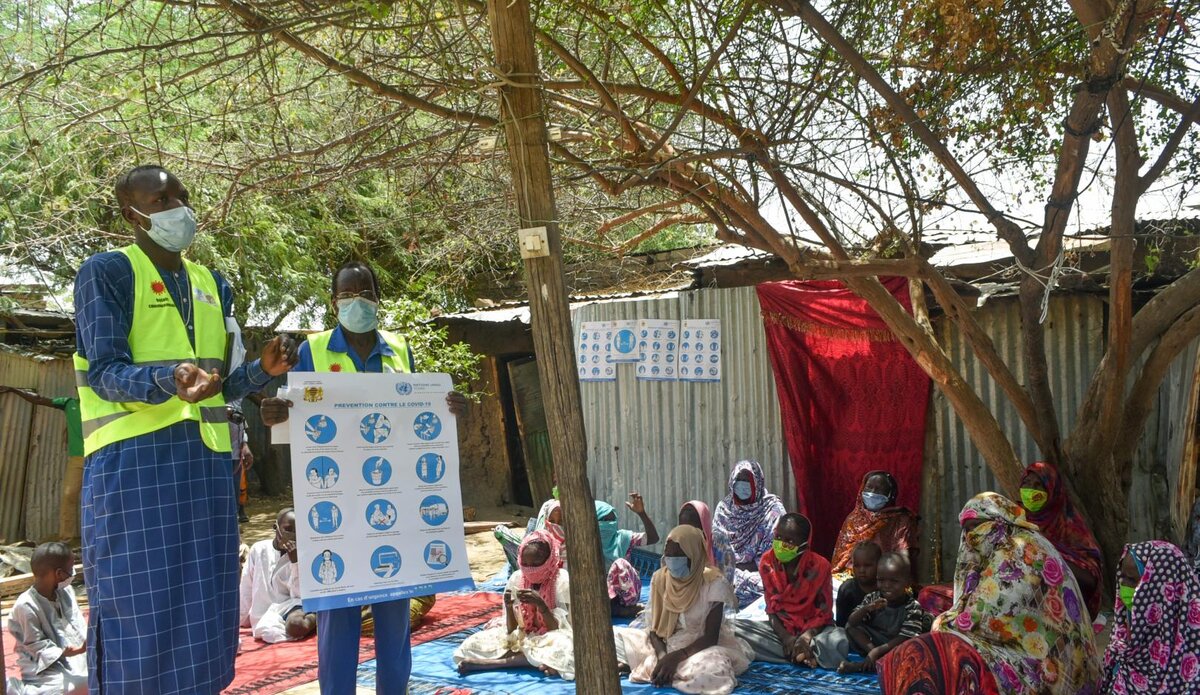Nurturing Mental Wellness Amidst the Pandemic

Nurturing Mental Wellness Amidst the Pandemic
The ongoing pandemic has placed unprecedented stress on mental health. This article delves into strategies for fostering mental wellness, promoting resilience, and navigating the challenges presented by the pandemic.
Understanding the Impact on Mental Health
The pandemic has triggered a surge in mental health challenges globally. From heightened anxiety and stress to feelings of isolation, it’s crucial to recognize and understand the impact on mental well-being. Acknowledging these challenges is the first step toward implementing effective mental wellness strategies.
Prioritizing Self-Care and Emotional Well-Being
Prioritizing self-care is essential for maintaining emotional well-being. This involves incorporating habits that contribute positively to mental health, such as regular exercise, sufficient sleep, and engaging in activities that bring joy. Establishing self-care routines forms a foundation for resilience.
Building Strong Support Systems
Social connections are integral to mental wellness. Building strong support systems, even in a socially distanced world, is crucial. Whether through virtual meet-ups or socially distanced interactions, maintaining connections with friends and family provides emotional support and combats feelings of isolation.
Utilizing Mental Health Resources
Accessing mental health resources is paramount during these challenging times. Online therapy, mental health hotlines, and virtual support groups offer avenues for seeking professional help and connecting with others facing similar struggles. Utilizing these resources contributes to a comprehensive mental wellness approach.
Mindfulness and Stress Reduction Techniques
Incorporating mindfulness practices and stress reduction techniques helps manage the impact of pandemic-induced stress. Techniques such as meditation, deep breathing exercises, and yoga contribute to a calmer mind, increased focus, and an overall sense of well-being.
Balancing Work and Personal Life
With remote work becoming the norm, finding a balance between professional responsibilities and personal life is crucial. Establishing clear boundaries, scheduling breaks, and maintaining a dedicated workspace contribute to a healthier work-life balance, reducing the risk of burnout.
Coping with Uncertainty and Change
The constant uncertainty and change brought by the pandemic can be mentally challenging. Developing adaptive coping mechanisms, embracing flexibility, and reframing perspectives on change are essential components of navigating the evolving landscape with resilience.
Promoting Mental Health in the Workplace
Employers play a significant role in promoting mental health in the workplace. Implementing mental health initiatives, providing resources, and fostering a supportive work environment contribute to the overall well-being of employees. Open communication about mental health reduces stigma and encourages seeking help.
Cultivating Positivity and Gratitude
Cultivating a positive mindset and practicing gratitude are powerful tools for mental wellness. Acknowledging positive aspects, expressing gratitude for small moments, and focusing on hopeful thoughts contribute to a more optimistic outlook, even in challenging times.
Staying Informed Responsibly
While staying informed about the pandemic is important, consuming information responsibly is crucial for mental well-being. Limiting exposure to news, fact-checking information, and taking breaks from media consumption contribute to a healthier mental state.
Visit The Healthy Consumer for a wealth of resources and support in nurturing mental wellness during the pandemic. Together, let’s prioritize mental health and build resilience for a brighter future.
United for Resilience: Community Support Amidst Pandemic

Fostering Resilience: Community Support During the Pandemic
Communities play a pivotal role in navigating the challenges posed by the ongoing pandemic. In this article, we explore the various ways communities can come together to provide support, share resources, and foster resilience during these unprecedented times.
Understanding the Importance of Community Support
The pandemic has highlighted the interconnectedness of communities and the significance of mutual support. This section delves into the importance of community support in addressing the diverse needs arising from the pandemic, from health concerns to economic hardships and emotional well-being.
Local Initiatives and Mutual Aid Networks
Communities have responded to the pandemic by establishing local initiatives and mutual aid networks. This part of the article discusses how grassroots efforts, such as neighborhood support groups and community-led initiatives, have emerged to provide assistance with tasks like grocery shopping, prescription pickups, and emotional support.
Volunteerism and Community Outreach
Volunteerism has been a driving force in community support. This section explores the power of volunteers and community outreach programs in addressing the unique challenges posed by the pandemic. Whether delivering meals to vulnerable populations or offering virtual companionship, volunteers contribute significantly to community resilience.
Supporting Local Businesses and Entrepreneurs
Local businesses and entrepreneurs have faced unprecedented challenges during the pandemic. This part of the article discusses community efforts to support local economies, from patronizing neighborhood businesses to promoting online platforms and encouraging innovative solutions to sustain local commerce.
Educational Support for Students and Families
The pandemic has disrupted education, creating challenges for students and families. This section explores community initiatives to provide educational support, such as online tutoring programs, resource sharing, and collaborative efforts to ensure that all students have access to quality learning opportunities.
Emotional and Mental Health Resources
The pandemic has taken a toll on mental health, emphasizing the need for emotional support. This part of the article discusses community resources dedicated to mental health and well-being, including virtual support groups, counseling services, and initiatives aimed at reducing the stigma surrounding mental health issues.
Crisis Communication and Information Sharing
Effective communication is key during a crisis. This section explores how communities have utilized various channels for crisis communication and information sharing. From local newsletters to social media groups, keeping residents informed and connected fosters a sense of community and shared responsibility.
TheHealthyConsumer.com: Your Hub for Community Support Insights
For comprehensive insights into community support during the pandemic, visit TheHealthyConsumer.com. The website offers articles, tips, and resources dedicated to understanding and navigating the complexities of community support in these challenging times.
Looking Ahead: Strengthening Community Bonds for the Future
In conclusion, community support during the pandemic is not only about addressing immediate needs but also about strengthening community bonds for the future. This concluding section reflects on the resilience communities have shown and the importance of continued collaboration for a more connected and supportive society.
In summary, community support during the pandemic involves a range of initiatives, from local grassroots efforts to virtual support networks. TheHealthyConsumer.com serves as a valuable resource for those seeking guidance on understanding and contributing to the ongoing efforts of community support in these unprecedented times.





